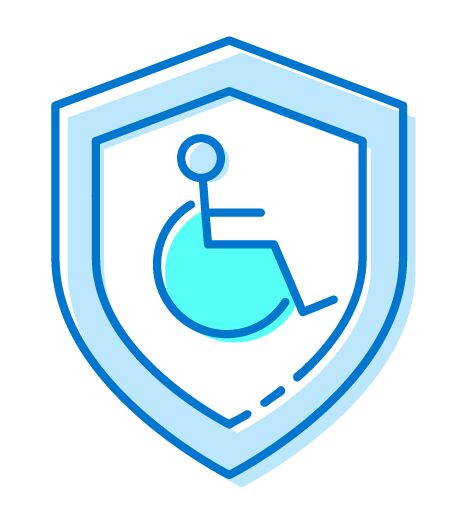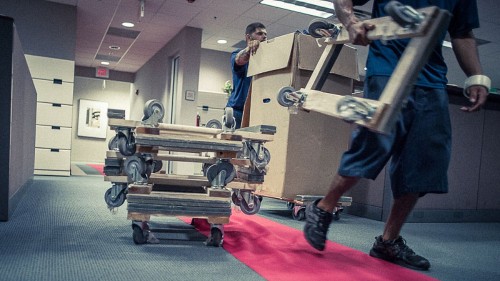As workers, we often focus on health and safety at work, assuming that nothing will go wrong. But the reality is that accidents and illnesses can happen when we least expect them. That’s why having disability insurance Trenton NJ is crucial. It offers financial protection if you become unable to work due to a disability, helping you maintain your lifestyle and cover essential expenses during recovery. In this blog, we’ll break down what you need to know about disability insurance, how it works alongside other policies like health insurance, workers compensation insurance, and even auto insurance, and why it’s an essential part of your financial planning.
1. What is Disability Insurance and Why is it Essential for Workers?
Disability insurance is a type of coverage that replaces a portion of your income if you are unable to work due to a disability caused by illness or injury. It helps you continue to meet your financial obligations—such as rent, utilities, and groceries—when you can’t earn an income.
A. Short-Term vs. Long-Term Disability Insurance
There are two primary types of disability insurance: short-term and long-term.
• Short-term disability insurance: Covers a temporary disability, typically lasting from a few weeks to six months. It often covers a percentage of your salary (usually 60%-70%).
• Long-term disability insurance: Kicks in after short-term coverage expires, providing income replacement for a longer duration, potentially until you reach retirement age.
Both types of insurance offer peace of mind knowing that you will have financial support in case you are unable to work.
B. How Disability Insurance Works
Typically, disability insurance works by paying a percentage of your income, usually between 50% and 70%, depending on the policy. This helps ease the financial burden while you focus on recovering and getting back to work.
2. How Does Disability Insurance Compare to Workers Compensation Insurance?
While both disability insurance and workers compensation insurance provide financial relief in case of work-related injuries, they are different in several ways.
A. Workers Compensation Insurance
Workers compensation insurance is specifically designed to cover employees who get injured or ill as a result of their work duties. It’s generally provided by your employer and covers:
• Medical expenses related to work injuries.
• Lost wages due to time off from work.
• Rehabilitation costs.
• Disability benefits if you cannot return to your job.
Unlike disability insurance, which covers both work-related and non-work-related illnesses or injuries, workers compensation insurance is limited to work-related incidents.
B. Disability Insurance for Non-Work-Related Injuries or Illnesses
Disability insurance covers a broader scope, including injuries and illnesses that may not be related to work. For example, if you suffer an illness like cancer or are involved in a car accident outside of work, disability insurance can step in and provide financial support, whereas workers compensation insurance would not apply.
C. How They Work Together
In some cases, both disability insurance and workers compensation insurance can work together. If you’re injured on the job and are eligible for workers’ comp benefits, your disability insurance policy may cover the portion of income not provided by workers compensation, ensuring you receive a more complete financial safety net.
Tip: It’s essential to understand how your disability insurance policy interacts with workers compensation insurance to ensure you’re adequately covered in the event of a work-related injury or illness.
3. Disability Insurance vs. Health Insurance: What’s the Difference?
You might be wondering how disability insurance compares to health insurance, especially since both are crucial to your well-being. While health insurance helps cover medical expenses, disability insurance offers income replacement when you’re unable to work.
A. Health Insurance Coverage
Health insurance typically covers medical expenses like doctor visits, surgeries, prescription medications, and hospital stays. However, it does not provide any income replacement if you become unable to work due to illness or injury.
B. How Disability Insurance Complements Health Insurance
While health insurance helps you manage your healthcare costs, disability insurance ensures that you can continue to pay your bills when you can’t work due to a disability. For example, if you need surgery or treatment for a condition that leaves you unable to work for an extended period, health insurance will cover your medical bills, and disability insurance will replace a portion of your lost income.
Tip: If you don’t already have both health insurance and disability insurance, it’s worth considering them together to provide comprehensive financial protection.
4. Auto Insurance: Does It Have Anything to Do With Disability Coverage?
While auto insurance doesn’t directly provide disability benefits, it plays an important role if your disability results from an automobile accident. Here’s how:
A. Auto Insurance and Injury Coverage
If you’re involved in a car accident and sustain an injury that prevents you from working, your auto insurance may help cover some of the medical costs and lost wages depending on your coverage. However, auto insurance won’t cover the long-term financial support needed if your injury leaves you disabled for an extended period.
B. Supplementing Auto Insurance with Disability Insurance
While auto insurance may help with immediate expenses following an accident, disability insurance ensures long-term income replacement if the injury results in a permanent or long-term disability. Having both types of insurance is essential to ensure you are financially protected if an accident affects your ability to work.
Tip: When purchasing auto insurance, consider adding coverage that includes personal injury protection (PIP) or uninsured motorist coverage, which can provide additional benefits in case of injury from an accident.
5. How to Choose the Right Disability Insurance for You
Choosing the right disability insurance policy depends on several factors, including your job, income, and financial goals. Here are some tips to help you make an informed decision:
A. Assess Your Financial Needs
Consider how much income you would need to maintain your lifestyle if you were unable to work. Calculate your monthly expenses, and ensure the disability insurance policy you choose will cover at least 60%-70% of your income.
B. Understand Your Employer’s Benefits
Many employers offer workers compensation insurance and may even offer short-term disability coverage. Be sure to understand what’s covered by your employer and whether you need additional coverage.
C. Look for a Policy With a Short Elimination Period
The elimination period is the time you must wait before benefits kick in after becoming disabled. Choose a policy with a short elimination period to receive benefits sooner.
Tip: Compare quotes from different insurance providers to find the best policy that meets your needs.
Conclusion
Accidents and illnesses are unpredictable, but disability insurance ensures that you’re financially protected when the unexpected happens. While health insurance and workers compensation insurance cover medical costs and work-related injuries, disability insurance is essential for replacing lost income due to non-work-related illnesses or long-term injuries.
As a worker, it’s essential to understand how these various insurance policies work together to protect your health, income, and future. Be proactive and invest in comprehensive coverage that includes disability insurance, health insurance, and auto insurance to ensure that you’re prepared for whatever life throws your way.
By understanding your options and making informed decisions, you can secure your financial future and maintain peace of mind, knowing that you’re covered in times of need. hospitalization insurance Trenton NJ



